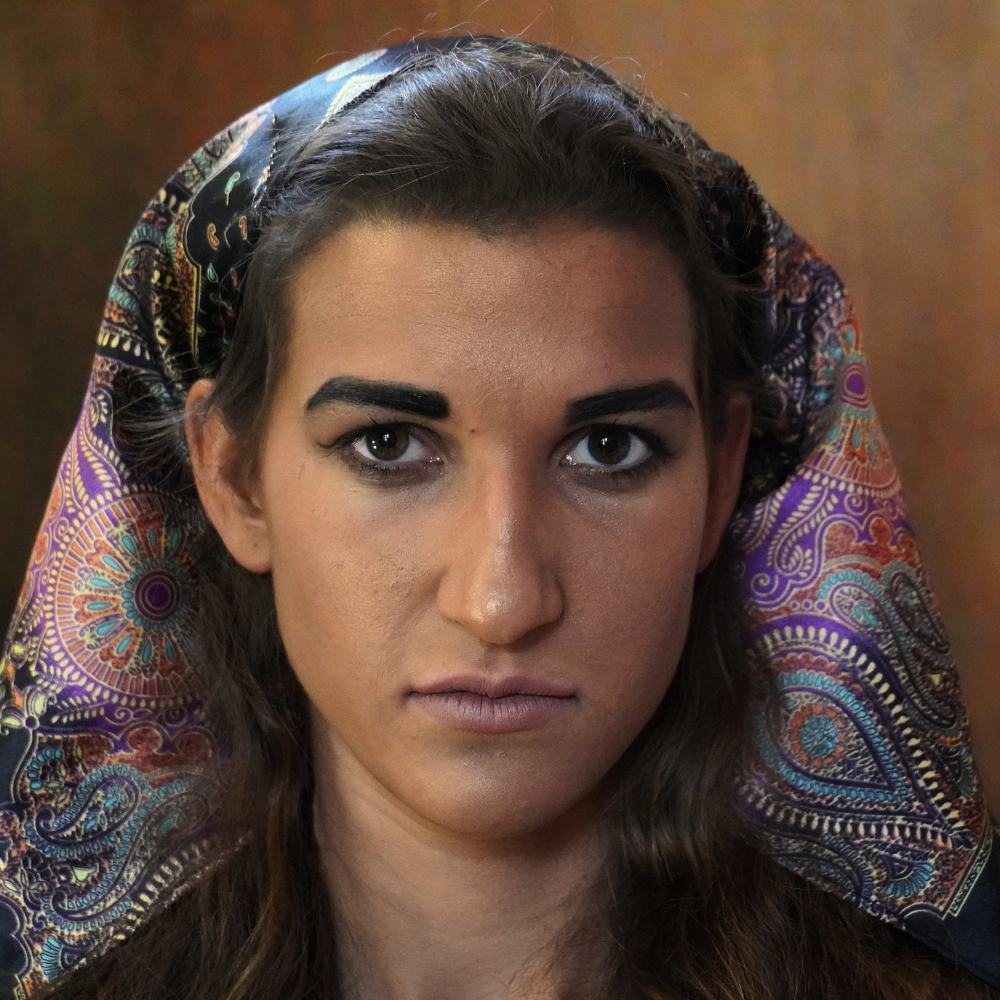Don't miss your chance to invest in 'Fabiola'!
Visit our crowd-funding page for our new production, "Fabiola"!
- Home
- Movies About Roman History
- Researching the FABIOLA Characters
Researching The FABIOLA Characters: Drawing On Several Sources From Around The World And Under The Sea To Form The Characters In The FABIOLA Film
Knowing even the lesser characters thoroughly was very important when researching the FABIOLA characters to make the story strong and relatable.
March 20, 2024

Although we did have some hints of the deeper personalities of the characters from Cardinal Wiseman, we took a deep dive into the references in the Fabiola book to completely form the characters into who they are going to be in the film.
Characters in books are okay to have deep feelings that the reader is let in on through the storytelling, but in film the audience only sees what is shown.
It was therefore very important to us to really look into the motives and feelings and backgrounds when we were researching the FABIOLA characters.
Taking A Closer Look At Fabius' Dual-Life While Researching The FABIOLA Characters
This was especially true of the darker characters. There is a part mentioned in the Fabiola book about Fabius traveling to a city called Baiae. I looked it up on the internet. I was immediately struck by the eerie nature of the statues well covered in seaweed from being in a city sunken for hundreds of years.
Apparently, this city was a place where depraved men would go to be away from all the normal people. Already by 25BC, it was written of this city,
But you must quickly leave degenerate Baiae;
these beaches bring divorce to many,
beaches for long the enemy of decent girls.
A curse on Baiae’s water, love’s disgrace!
from BBC.com
I can't help but feel like the sinking of this city is much like a mini version of the deluge: a corrupt city sunk into the depths of the sea. Only the nightmare-like statues that have expressions that almost look as if they've been scandalized remain of the once bustling perverted city.
The fact that Fabius travels to this city speaks of his true character. It's as if this man is actually hiding his true character while in Rome and needs a reprieve from his pretentious life by going to Baiae. This small aspect of this character alone really helped us shape how we wished to portray him.
Finding Reading A Warning In Saint Sebastian's Balance Of Patriotism, Reason, And Piety In Regards To Pagan Ceremonies
Another small aspect of character development, and I can't remember exactly what led us to adding this to the movie, was Sebastian and his relationship to the Roman holiday of Saturnalia. As a Christian, Sebastian of course knows that Christ is truly the light of the world.
During the Saturnalia festivities, the Roman pagans tried to light the streets during the night to rival with the light of day. The purpose was, as a line runs in Friends and Heroes, to "show Rome's power over nature".
Including Saturnalia allowed us to show this vice of the Romans and to develop Sebastian's character. He is a true Roman and holds Rome to high standards, but is still able to identify problems in his government and people. And, of course, when he asked to choose between his religion and his country, religion always comes first.
Viewing Pope Marcellinus As The Kind Father While Also Contemplating His Rumored Fall
The character of Pope Marcellinus was also a rather interesting character to look into. According to some reports, Pope Marcellinus did apostatize when pressured by the Romans. Fortunately, he repented before his death after the persecution. What does this have to do with the FABIOLA story?
READ: How Christianity Emerged From The Ashes Of The Fall Of The Roman Empire
It is Marcellinus that Torquatus goes to after he falls into the same sin. Marcellinus is far from being accusatory, but instead accepts the prodigal son back into the Church. Of course, Torquatus must preform penance, but it's as if he understands Torquatus' struggle.
There is also an account that St. Augustine found the story of Marcellinus' supposed apostasy to be unlikely, so there is that. But Cardinal Wiseman definitely gave a nod to it.
Using The Side Characters To Add Flavor And Support To The Story By Researching The FABIOLA Characters: The Good And The Evil
Caecilia is yet another character that we emphasized from Cardinal Wiseman's work. It is as though her physical blindness allows her to be clearsighted in spiritual matters.
This makes it so that her advice to the other characters is priceless. She is found in the catacombs holding the light for the other Christians, as she says, "with her lamp trimmed". This is a typical story of an artistic portrayal of the virtue of faith, blindly trusting that God will guide.

With Afra, Cardinal Wiseman only briefly mentioned the rituals of this pagan priestess, but that's not enough when writing a script.
You can't just have something like "A pagan ritual is overseen by Afra" as a scene description. Instead you need all that you are envisioning written down.
We researched ancient African religions and found that Voodooism is something that originated in Africa and that child sacrifice was part of it.
This fit well with the Roman soldiers who are posted on duty suggesting that it is probably a Christian ritual because of the rumors and prejudice against the Christians at this time suggested that this was a part of our liturgy.
READ: Diving Into Roman Women Clothing In The Upcoming Film, FABIOLA.
In fact, it fit so well that this may have been what Cardinal Wiseman had in mind when speaking of Afra's rites.
Having this scene in the film does two things: first it speaks of Afra's thorough pagan adherences which are important at the ending, and, secondly, it also shows that these things were going on at the time and it wasn't unreasonable for the Romans to suspect anything that was mysterious as probably being grotesque and disgusting.
Researching characters is an absolute must for filmmaking. Sometimes the pre-writing phase can feel like it is something you want to rush through, but it really is very important to do if the movie is going to have a strong storyline.
And when it came to researching the FABIOLA characters, I am very confident that we took our time and I'm really excited to see these characters come to life on screen during the FABIOLA movie!
Subscribe To Our FREE Email Newsletter:
Awards:


#RebuildChristianArt Blog
An aid for families encouraging the reconstruction of the social fabric by sparking interest in Christian art and culture. Find beautiful novels, films, music, food and customs.
What's New At The Studio
-
A French Filmmaking Family Brings Old-World Charm to Our Christmas Special
Dec 27, 25 09:00 AM
-
Radio Personality Joe McClane To Join Us For Industrious Family’s 2025 Christmas Special!
Dec 26, 25 09:00 AM
-
Merry Christmas from Industrious Family!
Dec 25, 25 09:00 AM












